Publications
-

Survey Shows Opportunity to Improve Communication Between Surgical Residents and FacultyOpens in a new window
Oct 1, 2021IHQSE Faculty, Dr. Sarah Tevis and team, published findings of a study which assessed opioid prescribing preferences for acute postoperative pain. Surgical residents reported that faculty preferences for opioid prescribing are a significant driver in their prescribing practices, inadvertently resulting in variability from established prescribing guidelines. Surgeons were surveyed about their preferences for prescribing opioids; those responses were then compared with actual prescribing practices and prescribing guidelines determined by the Opioid Prescribing Engagement Network. Results of the survey suggest that there is a disconnect in communication between residents and faculty as well as opportunity for enhanced education on prescribing guidelines.Opens in a new window Full story -

Study Shows Opioid-Sparing Analgesia Protocols Result in Better Post-Op Pain Control, Reduced Need for OpioidsOpens in a new window
Jun 1, 2021IHQSE Faculty, Dr. Sarah Tevis, co-authored a study showing that lumpectomy patients who received a perioperative opioid-sparing multimodal analgesia protocol reported significantly lower postoperative pain and were able to be discharged without an opioid prescription. This publication in Annals of Surgical Oncology showed the reduction of excess opioids available for diversion--made possible by implementing opioid-sparing multimodal analgesia.Opens in a new window Full story -
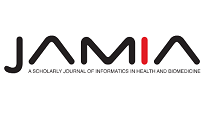
IHQSE Faculty Member Creates Real-time Mortality Prediction ToolOpens in a new window
May 10, 2021Working with a team of clinicians and informaticists, IHQSE Director Dr. Jeff Glasheen helped create and implement an EHR-driven tool that accurately predicts inpatient mortality. The tool, using real-time data from Epic, provides a highly predictive mortality score that is updated every 15 minutes across a 12-hospital health system. Tested on over 80,000 patients, the tool was developed to aid decision making in scarce resource situations, such as COVID-19 ventilator shortages.Opens in a new window Full story -
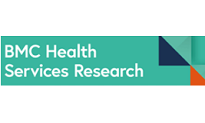
COVID-19’s Impact on Physicians & StaffOpens in a new window
Apr 28, 2021IHQSE Faculty member, Emily Gottenborg, MD, and her colleague, Amy Yu, MD, are first authors on an article about the pandemic's impact on personal and professional activities of healthcare providers. They suggest solutions to help mitigate the impact, such as continuing alternate and flexible work schedules, developing flexible promotion timelines, investing in family support mechanisms, creating social support networks, and addressing gender pay disparities.Opens in a new window Full story -
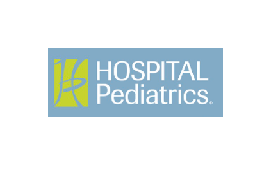
IHQSE Graduates' Publication Outlines Improvements in Inpatient Penicillin Allergy DelabelingOpens in a new window
Apr 13, 2021Ninety percent of patients labeled as penicillin allergic are tolerant to the medication, yet those labeled as allergic have longer hospital stays, increased exposure to suboptimal antibiotics, and an increased risk of methicillin-resistant infections. Through several quality improvement interventions, including development of a multidisciplinary clinical care pathway, workflow optimization, and education sessions, a team from Children’s Hospital Colorado successfully increased the rate of penicillin allergy delabeling among low-risk hospitalized pediatric patients. Led by Certificate Training Program graduates Drs. Maureen Egan Bauer and Kirstin Carel, Christine MacBrayne, PharmD, and Amy Stein, CPNP, this work allowed for increased use of optimal antibiotics.Opens in a new window Full story -

IHQSE Alum Comments on Impact of COVID-19 Pandemic on Handshake StewardshipOpens in a new window
Mar 1, 2021Among the myriad impacts that the COVID-19 pandemic had on medicine and patient care, restrictions on face-to-face interactions among practitioners are often overlooked. In a commentary written for The Joint Commission Journal on Quality and Patient Safety, IHQSE alum, Dr. Sarah Parker, explores how collaborative processes like “handshake” antimicrobial stewardship have adapted to the challenge posed by social distancing and increased virtual communication.Opens in a new window Full story -
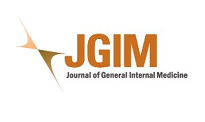
IHQSE Leader Publishes Formative Look at Challenges to Women in Healthcare LeadershipOpens in a new window
Feb 2, 2021Dr. Emily Gottenborg, IHQSE faculty member and Director of the Introductory Training Program, was the lead author on a seminal paper understanding the experiences of women in leadership roles in hospital medicine. Her team highlighted four limiting challenges including lack of leadership training, bullying, a need to sacrifice to achieve balance and the need for personal and professional validation. Key interventions to address these issues were also shared.Opens in a new window Full story -
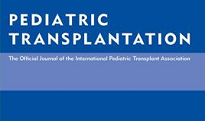
Kidney Transplant Team Adapts Pediatric-to-Adult Transition Program to Virtual FormatOpens in a new window
Jan 9, 2021Recognizing the challenges of in-person sessions due to COVID-19, Certificate Training Program graduates Drs. Mary Chandran and Margaret Bock and Clinical Program Manager Megan Bisek published their experience adapting their pediatric kidney transplant transition-to-adult-care program to a virtual platform. The team attributed much of their progress to the knowledge and skills gained in the CTP course.Opens in a new window Full story -

IHQSE Faculty Member Helps Reconsider Opioid Use in Breast SurgeryOpens in a new window
Oct 30, 2020IHQSE faculty, Dr. Sarah Tevis and team, evaluated pain management practices in relation to postoperative prescribing of opioids for patients undergoing breast surgery. The authors suggest that a revaluation of pre- and perioperative pain management practices and a multidisciplinary approach using ERAS protocols could potentially lead to improved patient outcomes while mitigating opioid over-prescription.Opens in a new window Full story -
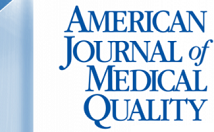
IHQSE Faculty Publish Successes of Early-career Quality and Leadership Training ProgramOpens in a new window
Oct 8, 2020IHQSE faculty published the six-year follow up of the success of University of Colorado School of Medicine’s Health Innovations Scholars Program. The program has shown a lasting impact on students' ongoing participation and leadership of quality and innovation work.Opens in a new window Full story